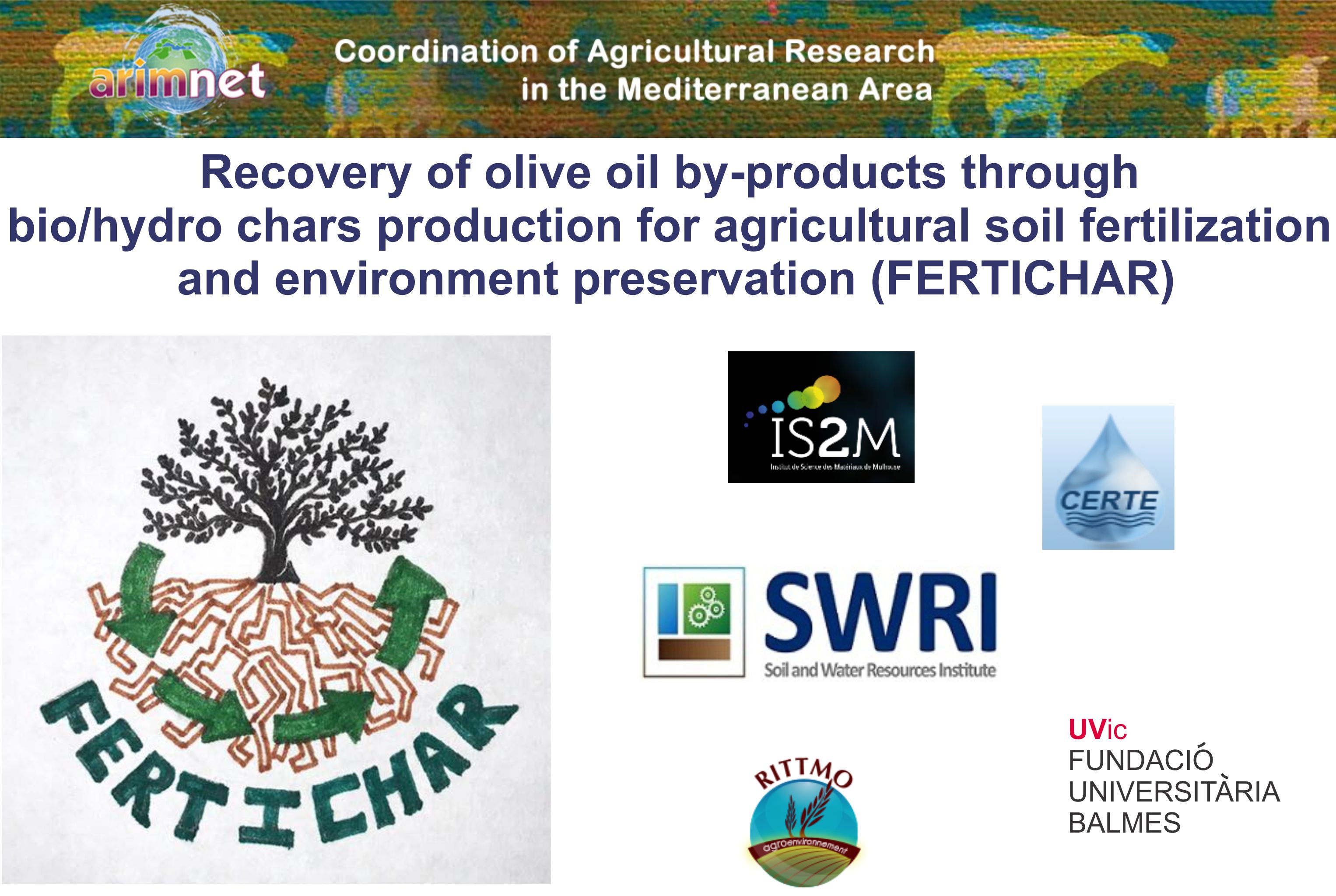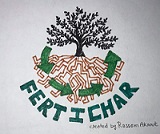
Olive oil production is concentrated mainly in Mediterranean countries basin. According to the International Olive Oil Council (IOOC) statistics, during the 2010/2016 period, Spain, Greece, Tunisia and France produced a total amount of 1.742 millions tones which represents about 59.2% of the total worldwide produced quantity (IOOC, 2017). Oil extraction process generates huge amounts of both liquid (olive mill wastewater, OMW) and solid (Olive Solid Waste, OSW). Nowadays, the sustainable management of these wastes by using technically and economically viable technologies has been stressed by all the sector actors.
FERTICHAR project consortium is composed by partners from the main olive oil producers’ countries. The idea of the project is based on a recent established strategy for the recovery of the OMW (Haddad et al., 2017). This innovative strategy was proposed in the frame of a well established collaboration between the French and Tunisian partners. It included an impregnation of OMW on lignocellulosic biomass (sawdust) followed by a thermal treatment (slow pyrolysis) of this mixture. This investigation proved that it is possible to turn OMW from a pollutant source to green fuels, and biofertilizers (nutrient-enriched-biochars) producer.
The main purposes of the present project are:
i) to quantify and to characterize the olive oil residues generated by the different extraction system available in the Mediterranean countries,
ii) to produce and characterize diverse nutrients-enriched biochars (slow pyrolysis) and nutrients-enriched hydrochars (hydrothermal carbonization) from impregnated OSW by OMW under different experimental conditions,
iii) to select the suitable chars, to be used as fertilizers, on the basis of in-depth physico-chemical characterization, and
iv) to apply these two produced nutrients-enriched-chars as amendments for olive trees in logic of the “circular economy” concept and also for crops with high economical added value under different scales (laboratory and field).
During these experiments, crops growth in relation with nutrients availability, dissolved organic pollutants transport, irrigated water flow and bacterial activity will be measured and simulated by using an appropriate numerical code.
The main outcomes of this project will be exploited, disseminated and communicated to the concerned actors (olive mill owners, farmers, public organisms in charge of olive sector, agriculture, environment and scientists), through the implementation of specific convivial tools.

